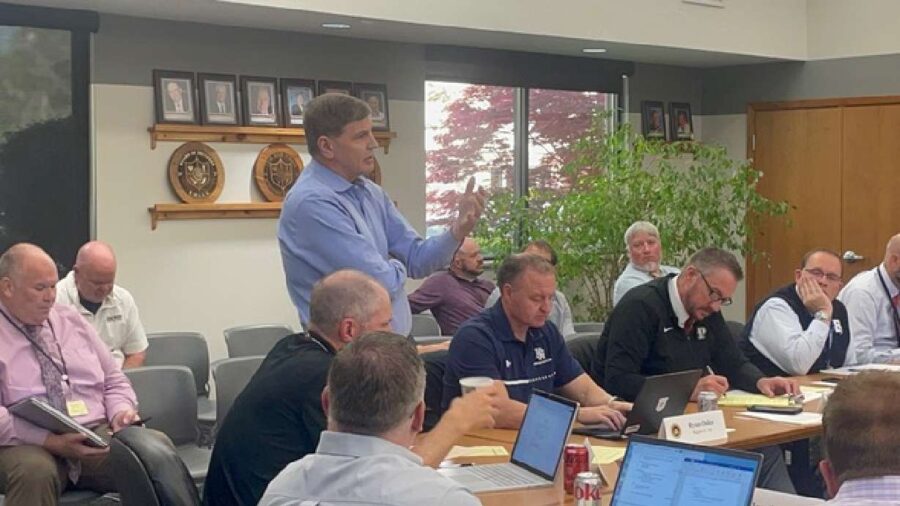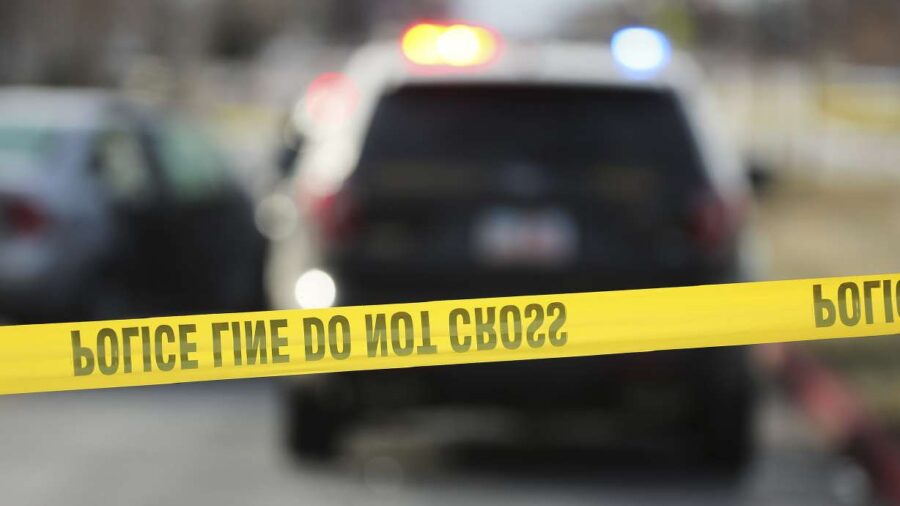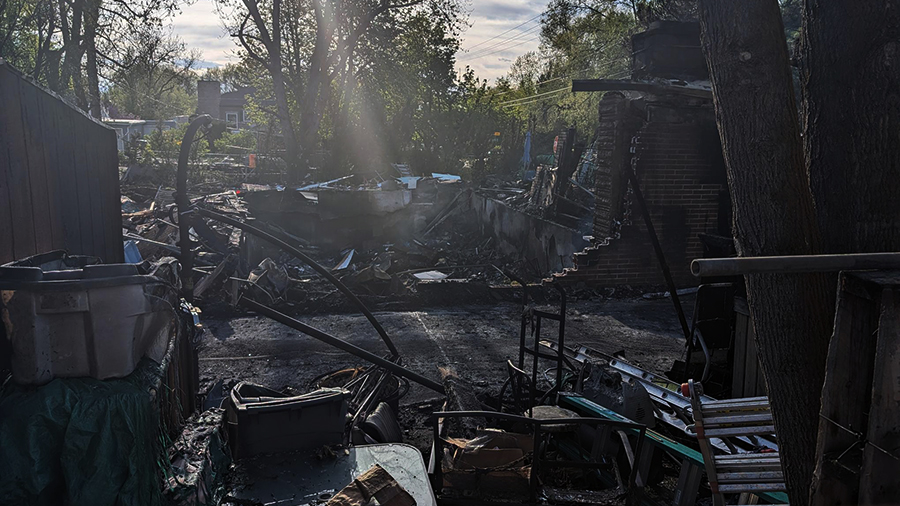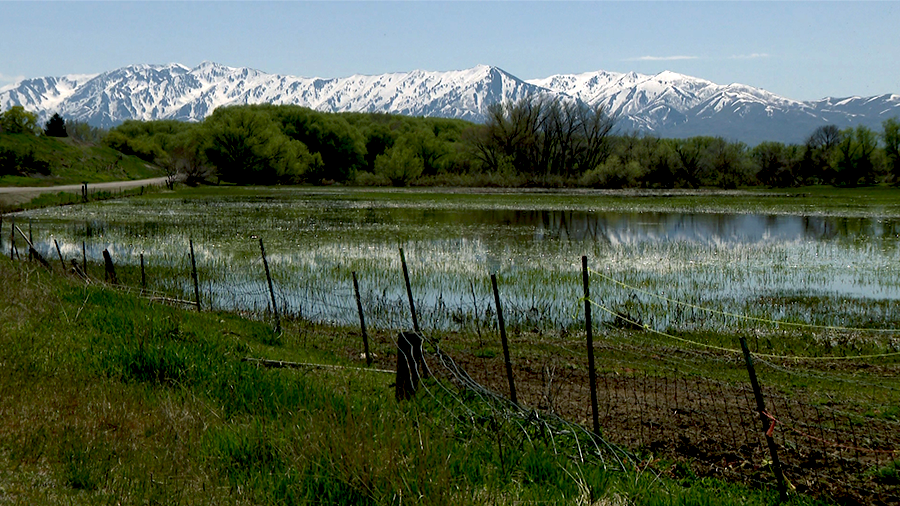3 unsheltered people have died on Provo streets this winter. Could a shelter prevent deaths?
Jan 12, 2023, 12:37 PM
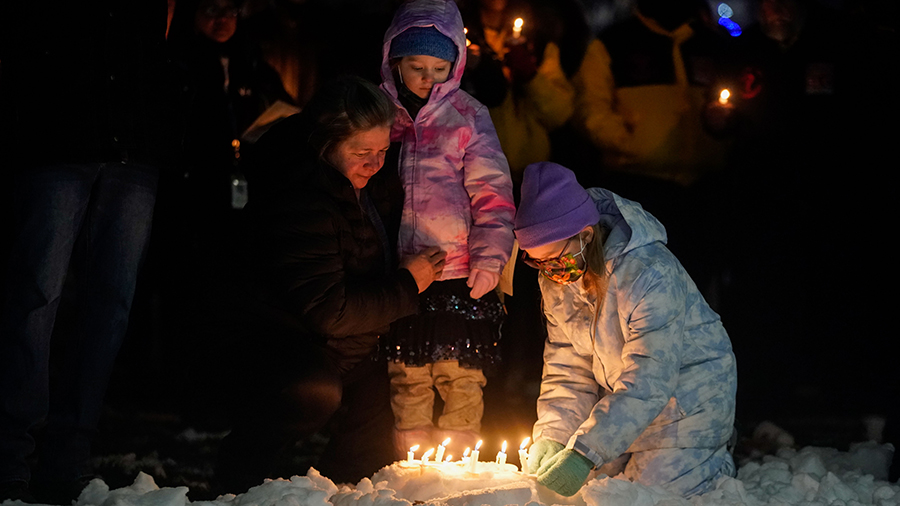
FILE — Brenda Somers, left, Lilly, 6, center, and Astryd, 11, put candles on a pile of snow during the 2021 Homeless Persons Memorial Candlelight Vigil at Pioneer Park in Salt Lake City on Tuesday, Dec. 21, 2021. The vigil honored the 116 men and women who died in Salt Lake City while experiencing homelessness over the past year. (Shafkat Anowar, Deseret News)
(Shafkat Anowar, Deseret News)
PROVO, Utah — Heather Hogue has difficulty sleeping at night, especially when temperatures begin to near 20 degrees.
Hogue is a part of the Mountainland Continuum of Care, a coalition of organizations in Wasatch, Summit and Utah counties focused on addressing homelessness. As a continuum, the group works to coordinate their efforts and pool resources to better understand the gaps in homeless services.
Each year as winter arrives, Hogue awaits the inevitable. The frigid weather and freezing temperatures pose an increased risk to people who are experiencing homelessness with the possibility of developing fatal cases of hypothermia or frostbite.
With no homeless shelter in the Provo area and city zoning rules prohibiting one, there are few options for the unsheltered.
“We utilize hotels and motels for short, short-term emergency shelter. We ramp that up during the winter time,” explained Hogue, Continuum of Care project coordinator with United Way of Utah County.
“Is that sufficient? No, it’s not. It’s not sufficient. But it does serve as a backup. A triage for people especially in the wintertime when we’re worried about the temperatures killing people. There’s no reason for people to freeze to death on the streets, and we see it every week, every winter,” she said.
At least three unsheltered people have died on Provo’s streets this winter, said Hogue. Provo police have confirmed the three deaths with the first of the winter season occurring in October. The cause of each death has not yet been determined by the medical examiner, police said.
“All of them especially vulnerable, all three of them chronically homeless. All three of them have survived many, many winters in Provo, but for some reason did not this time. And you never know, you never quite know what to do about that. It’s a hard line,” Hogue said.
Despite deaths occurring every year in the approximately 15 years she’s worked in homeless services, the three recent deaths surprised Hogue.
“You lose sleep over it. What can be done differently? And sometimes the answer is I don’t know. Would they have been too vulnerable to help themselves to get to a shelter if we had one? Would we have had that capacity for people?” she asked.
The questions demonstrate the difficult conversations and complexity surrounding homelessness, especially in counties outside of Salt Lake County. Limited resources, city zoning rules, staffing and funding shortages are among the barriers faced in both urban and rural areas.
A homeless shelter would have to either be low barrier, meaning anyone can access the shelter despite a criminal record or substance use, or high barrier which comes with prerequisites. While high-barrier shelters are often more “palatable” to neighborhoods, it can be difficult to fund them.
While Hogue says she’d love to see an emergency shelter built in the Provo area and “would be out there with my hammer,” staffing that homeless shelter provides another barrier.
“We cannot pay what the for-profit world pays. As a nonprofit, we are losing staff statewide to better jobs. Why work for $16 an hour as a case manager with a population that is high needs when you can make $19 at In-N-Out. You go home and smell like beef every day, but you don’t worry that your clients are going to die at night,” she said.
All of them especially vulnerable, all three of them chronically homeless. All three of them have survived many, many winters in Provo but for some reason did not this time. And you never know, you never quite know what to do about that. It’s a hard line — Heather Hogue, project coordinator with United Way of Utah County
“Housing solves homelessness, like bottom line housing solves homelessness. Supports have to be in place. … You can’t give somebody a place to live and naturally expect that they’re going to get over their barriers that lead to homelessness. But support without housing is not enough,” Hogue said. “We absolutely need this money to come through.”
But even with additional housing, Pastor Justin Banks of the Genesis Project anticipates there will always be a need.
“There are a lot of homeless as well as low-income people struggling here in this area. They’re actually everywhere. You know, they’re everywhere in every city, every town has people that struggle,” he said.
The Genesis Project, a small nondenominational church, has been operating “movie nights” for nearly seven years to meet the immediate need in freezing temperatures. The movie nights can only operate when temperatures are below freezing and often just twice a week due to limited funding, Pastor Banks said.
Despite limitations, the church and its volunteers work to deliver meals or provide supplies to the unsheltered.
“If we can keep people dry, we can keep them alive,” he said. “We just do what’s in front of us. We love everybody, and hopefully, we can save some. That’s our goal.”



